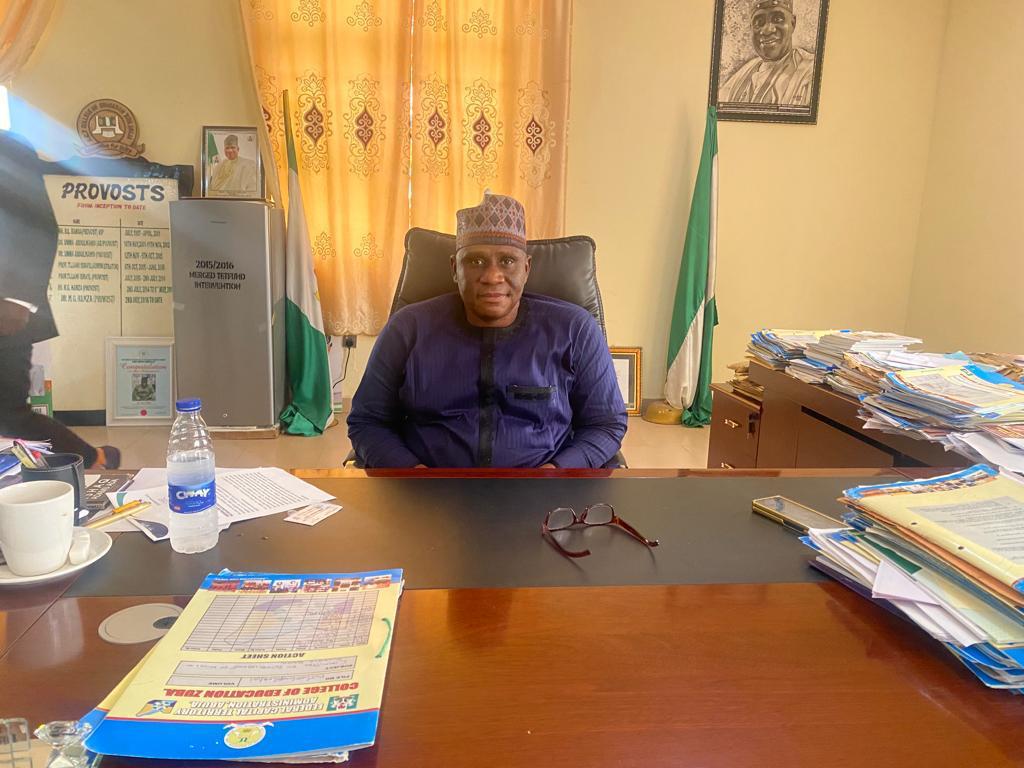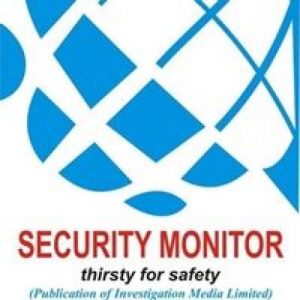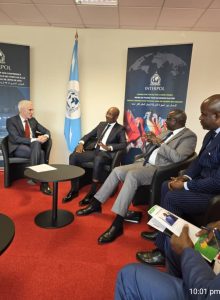Tertiary Education Would’ve Been in Terrible State Without TETFund, Says FCT College Provost

Sule Mundi is the provost of the FCT College of Education. The provost in this interview discussed several key developments and priorities in the college and how the institution is embracing technology.
The provost also detailed the importance of the Tertiary Education Trust Fund (TETFund) in sustaining Nigeria’s educational system.

Recently, the college signed an MoU with ABU Zaria to enable students to pursue a degree. What has been the outcome of this partnership?
The agreement is up to three years now. The first set of students are in their 400 level. They entered from the 200 level and have spent three years on the programme. The programme has been very successful. We have been running it hitch-free. We don’t regret signing that agreement at all.

What are some of the recent achievements and milestones of the college?
When we came into the office, the first thing we did was to move the college from the old site to the new site because we had a lot of intervention projects from TETFund in the permanent site without use. So, we thought we should move the college to the permanent site. We also moved the school of sciences to the permanent site. Most of the lectures are held here on the permanent site. That is the first achievement.
Secondly, we have improved the staff welfare. We have not had any arguments with staff. Whatever it is that we are supposed to do for them, we have been doing it so well. We have recruited 228 staff members to join us in the college to improve the number of staff that we have. We are also preparing for accreditation. We have gotten approval and intervention from FCDA for the accreditation. We have additional funding now to prepare for the accreditation.
We have done so many other things. We have bought about 600 computers for the CBT centre to take off. So, we have a full-fledged CBT centre that is ready for use immediately. We have also acquired some furniture for some other buildings, the school of sciences in particular.
We have made sure that we maintain all our buildings. Anytime there is an opening in the wall of any building, immediately we mobilise for repair. As we speak, we are repairing about nine blocks of buildings in the old site. Those are the things we have done so far. I think the college is happy. Only recently, we awarded some of our staff who have performed so well.
How has the college adapted to change, especially in the integration of technology and online learning?
In the 21st century, everybody should be thinking of implementing technology in learning. We think that learning should be wherever you are. You don’t have to come into the classroom. Sometimes, you have to be in the classroom; some other times, you don’t have to be.
We are making sure that ICT is well-developed in this college. That is why one of the things we started with was to buy the number of computers I have told you about to ensure that learning is at ease. We want to reduce paper examinations as much as we can so that students can just answer questions using CBT software.
We have a group of staff members who have undergone training that we intend to step down to other lecturers. We want to coach all our lecturers to make sure that they understand online learning. We should be able to use e-learning platforms. We have acquired it. We are placing a serious emphasis on e-learning. Sometimes, you don’t have to be in the classroom before you learn. Assignments can be posted on the school website for students to run. Examination can be done online. This will ease the use of paper. Of course, we have to embrace the e-learning platform.
Do you have a deadline to kick off online learning?
Sure. We are thinking that within the next year, we should be able to write many of our examinations, especially education courses that are usually bulky and general study courses. Most of them should be written using computers instead of paper.
What have been the key TETFund interventions in the college?
We benefited from all kinds of interventions from TETFund. We have benefited mostly from the infrastructural developments of the college. As you can see, most of the buildings in this college were provided using the intervention from TETFund. The school of sciences, the complex, school of languages, school of arts and social sciences, school of vocation, department of agriculture, and all the four theatres that we have in the permanent site are all TETFund interventions. That’s for infrastructure.
For training, we have sent close to about 70 staff members for PhD and masters programmes all through TETFund intervention. We have also attended conferences using TETFund intervention — institution-based research (IBR) also using TETFund. There is no area of intervention from TETFund that we have not actually used in this college. We are definitely very thankful to TETFund. It is very beneficial to the college. We are happy about it.
Your scholars that were sent abroad for training, do they return to the college after their studies?
Of course, most of them came back. The ones that have finished their studies are back. We are expecting more this year. We have a few cases, I think one or so that have not returned. We will ensure that she returns. We have written to her officially. We will report her case to TETFund if she does not return as soon as we expect her to return.
What would have been the state of tertiary institutions in the country without TETFund?
A TETFund project in the college
Mundi: The educational system in the country would have been in a very terrible state. TETFund has come as an intervention to save the educational system of this country. Infrastructural provisions that you have in most colleges, universities and polytechnics, if not for TETFund, definitely they wouldn’t have had them. They won’t have even half of it. This college doesn’t have much from other sources apart from TETFund.
How is the college preparing students for the challenges and opportunities of the 21st century?
The college is prepared for the 21st century. As I said, we have expanded our ICT. Another way is through entrepreneurship. We are making sure that the students develop skills. We are lucky now that in our minimum standard, there is a course called entrepreneurship in the general studies. Each student of this college must be able to do something. You must produce something during your studies in this school because you have to take that course called entrepreneurship. Fifty percent of the mark goes to the theoretical aspect and the remaining 50 is for what you have produced. Some have produced sucks, cakes, textiles, and several other things.
We are preparing them through this method because we think that by the time you graduate here, even before you get any job, you should be able to do something for yourself.
In our vocational and technical education department, we emphasise so much on the practical. Just this morning, I had a meeting with all the heads of departments in the vocational and tech school for them to put emphasis on skills development. These are the areas we are thinking about, in addition to the expansion of ICT to make sure that students are prepared for 21st-century development and learning, and to develop skills.
What are your top priorities in the next few years?
Ultimately, the goal of the college is to produce qualitative students who are able to give to society what we input in them. We are ensuring that each student who graduates from here acquires enough knowledge. So, emphasis is placed on making sure that all staff are able to deliver.
We also want to improve the infrastructure of the college as much as possible. As you can see, the internal road network is still bad. We are making sure that the road network in the school improves seriously. We are working so much on that area. We are also working to have more classrooms and ICT equipment.
We are also making sure that the students and the environment are secure because teaching in an unsecured environment does not make the students concentrate. One of the things we have achieved in the short time we have been in office is to outsource a security company that has brought about 60 security men who are guarding our college community here. We have also outsourced some policemen and civil defence. All of them working in synergy are providing the best security for the environment. The security of the environment has improved over time.
So, there are no security breaches?
Not much. Security has improved seriously. Before now, it wasn’t so good. But as it is, we are happy it has improved.
What have been the challenges on the job?
The major challenge that we have in the college is the lack of sufficient funding. For us to solve problems, we need enough money. We need to make sure that the money is available to us to do the things we are supposed to do. There are many things we need to do. To improve the welfare of staff, and infrastructure, expand ICT, whatever you want to do involves money.
We call on the minister of FCT to help us and add to what TETFund is doing so that the college will be proud of the FCDA. We do not have too many challenges apart from funding.
How do you want the college to be when your tenure ends?
I want to leave the college as an institution that has the best quality education in the most secure environment so that if you graduate from here, you can say I acquired my education in the best academic environment.
I want to emphasise security, infrastructure, quality of staff and students, and the best aesthetic environment. I want to leave this college as a place where the students will be able to develop entrepreneurial skills to help themselves. I want students of this college to be proud of the school they have graduated from.
SOURCE: TheCable








